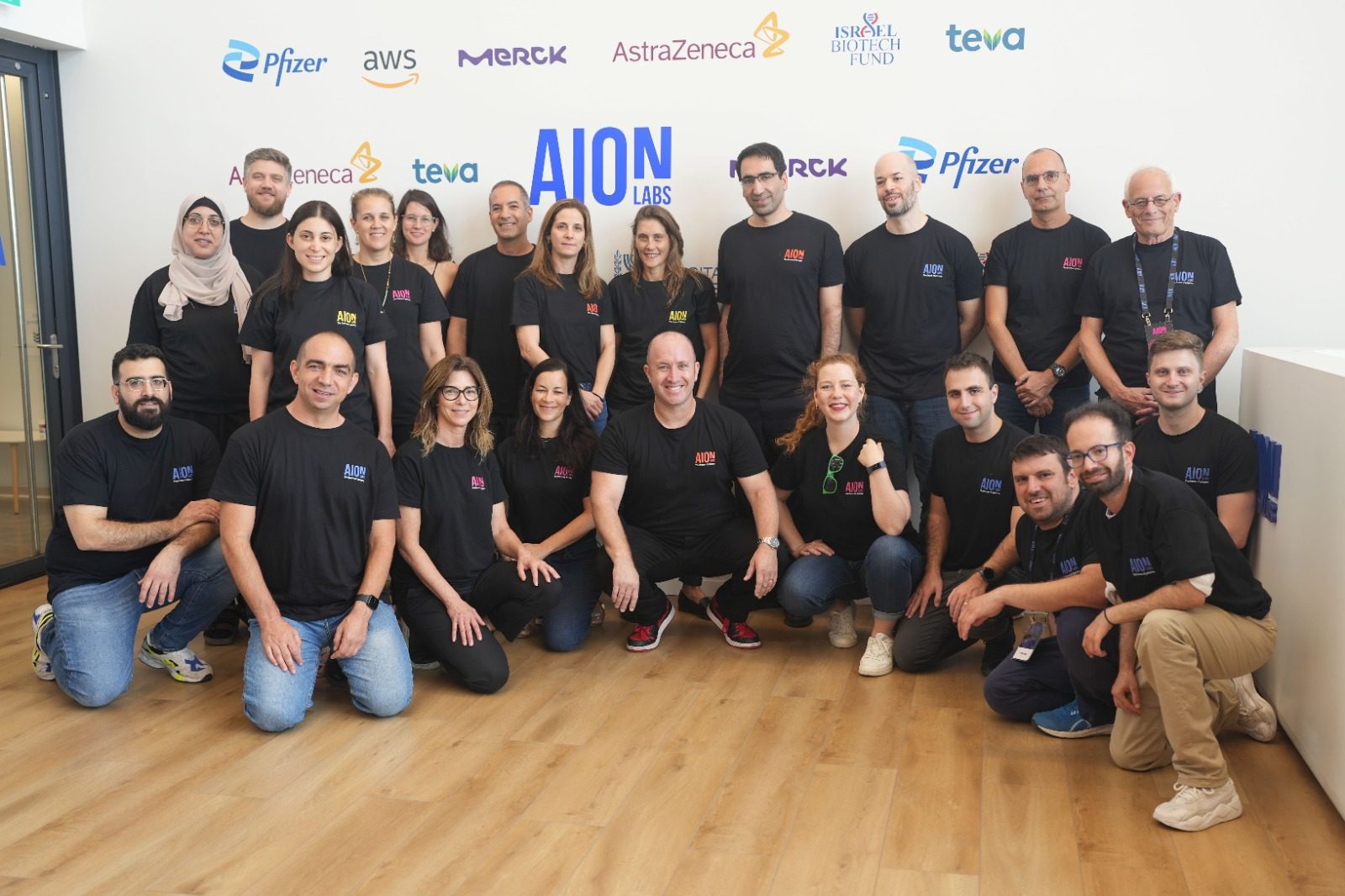The Israel Biotech Revolution: AI, Collaboration, and Shaping the Future
Health Tech
Mati Gill, CEO, AION Labs
The challenge of building the Israel biotech ecosystem
Israel has long been recognized as a hub for technological innovation, leading the way in industries ranging from cybersecurity and telecommunications to medical technology and artificial intelligence, yet Israel biotech has lagged behind. The Startup Nation has traditionally faced challenges in replicating its high-tech success in the biotech space. Advancements in computational biology are changing this.
Despite possessing all the necessary ingredients – including a robust and integrated healthcare system, world-leading academic institutions, and strong government support – Israel has yet to foster a globally competitive biotech ecosystem.
This is due to a range of factors, including a traditionally conservative industry dominated by multinational corporations – many of them considerably older than the modern state of Israel – and Israel’s relatively small market size.
In parallel, many aspects of Israel’s culture of entrepreneurship are not conducive to the biotech industry, which requires highly regulated processes, long-term thinking, and patience. The result is that, with a few exceptions, such as Teva Pharmaceuticals, we have generally not seen Israeli biotech startups become growth companies and multinational corporations building R&D centers in Israel, as has been the case in almost every other industry.
Israel’s AI proficiency spells promise for computational biology
Artificial intelligence is increasingly important to both the present and future of the biotech industry. The result is that greater emphasis is being placed on the ‘tech’ side of the biotech equation.
With the emergence of AI as the driving force in drug discovery and development, Israel has the opportunity to build a thriving and globally competitive ecosystem, alongside Boston, California, Germany, France, and the UK, among others.
This has already begun to take shape with multinationals increasing their investments in Israel. Organizations such as GSK and Verily recently opened research and development centers in Israel, while companies including Pfizer and AstraZeneca are making their first R&D investments in the country.
With advancements in AI and a growing recognition of the pivotal role machine learning will play in shaping biotech innovation, Israel is poised to become a strong ecosystem in computational biology.
Success through collaboration: co-development is critical for AI pharma innovation
Israel’s success in the biotech space, which is highly reliant on regulatory approvals and biological processes, hinges on collaboration. A co-development model, matching Israel’s AI and computational ingenuity with the vast experience of global pharmaceutical leaders, can expedite drug discovery and development, increase precision, and improve clinical trials.
Through leveraging AI and big data, these partnerships can identify new drug targets to treat more diseases and ultimately benefit more patients.
This model brings in experienced pharma executives from the outset to help define challenges and provide customer insights for a strong product-market fit. Additionally, the support of multinationals provides mentorship throughout the development process, validation of the technology, and access to proprietary data on which to build and refine AI models.
Such efforts show considerable promise, as exemplified by Insmed’s partnership with Google Cloud to accelerate drug discovery through a generative AI model. These collaborative models are already being replicated in Israel, as seen with Quris-AI’s collaboration with Merck KGaA to identify toxicity risks in the selection of drug candidates.
The potential of computational biology collaborations provides a blueprint for future endeavors in the Israeli biotech landscape.
The implications for Israel biotech
Israel’s emergence as a hub of innovation in computational biology carries profound implications for both the Israel biotech landscape as well as the global landscape. The nation’s academic leaders are becoming increasingly entrepreneurial and pursuing careers beyond academia, applying their ideas to create tangible products that can provide practical good in the world.
This has already garnered interest from multinational corporations, positioning the nation as a focal point for cutting-edge research and development. We are now witnessing the emergence of a new generation of startups that make Israel a relevant computational biology hub, attracting investment from global VCs and pharmaceutical developers.
The combination of high-quality academic research and contributions from multinational entities highlights Israel’s potential to shape the future of computational biology.
On the cusp of a new era in computational biology
Israel is poised to shape the future of computational biology, contributing to advancements that transcend geographical boundaries and traditional barriers. As the country’s nascent biotech ecosystem continues to cultivate international partnerships and harness the power of AI, it is becoming highly relevant for global investment and scientific breakthroughs in computational biology. With a commitment to addressing industry needs and shaping the future of biotech, Israel’s computational biology revolution is quickly moving from the realm of possibility to a promising reality.
Mati Gill is CEO of AION Labs, a venture studio with a first-of-its-kind company creation model for new start-ups utilizing AI for drug discovery and development. Supported by the Israeli Government, AION Labs was formed from the unique alliance of Pfizer, Amazon Web Services, AstraZeneca, Teva Pharmaceuticals, Merck, the Israel Biotech Fund, Amiti Ventures, and BioMed X. Before founding AION Labs, Mati was a senior executive at Teva Pharmaceuticals and served as Chief of Staff for Israel’s Minister of Public Security. He is an IDF veteran (Maj. res.) and founder of the Sanhedrin Forum for young Israeli professionals. A qualified attorney, Mati holds an LLM and an MBA in Healthcare and Innovation, both from Reichman University. He currently serves on the boards of the Israel Advanced Technology Industries Association (IATI) and the Israel America Chamber of Commerce (AmCham).

 Tech Ecosystem
Tech Ecosystem Human Capital
Human Capital Focus Sector
Focus Sector Business Opportunities
Business Opportunities Investment in Israel
Investment in Israel Innovation Diplomacy
Innovation Diplomacy Leadership Circle
Leadership Circle Our Story
Our Story Management Team
Management Team Careers
Careers